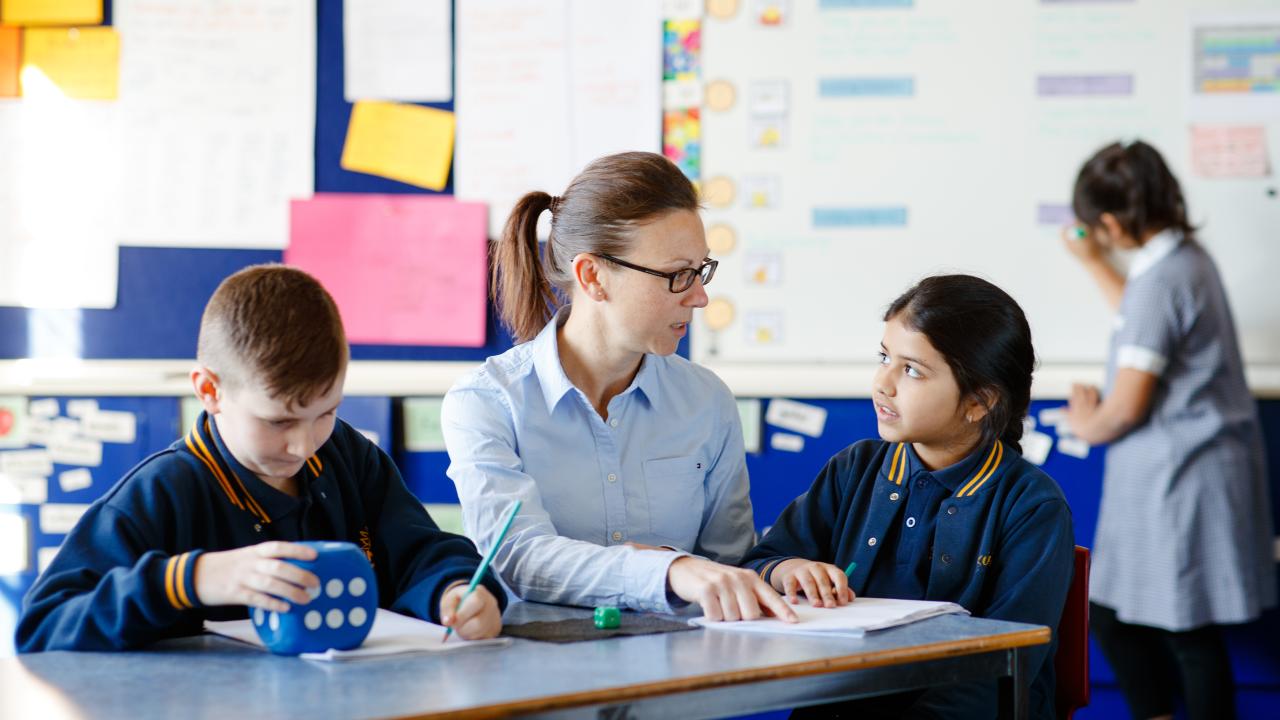18 Jul 2025
Understanding maths anxiety

Maths anxiety - the hidden impact
“I was never good at maths…”
If you’ve ever said this out loud (or even thought it), you’re not alone—but it can shape how children feel about learning maths.
Luckily, you don't need to be a maths whiz to make a difference.! In this article, we provide you with some simple things you can do to help your child build the skills and confidence they need so they can thrive in maths.Simple ways to build your child’s maths confidence at home
The way parents and carers talk about maths (sometimes referred to as numeracy) has a powerful impact on how children feel about the subject.
Positive maths talk
When maths is spoken about negatively at home, children are more likely to experience maths anxiety—a sense of fear or worry when faced with mathematical tasks. This anxiety can lead to lower achievement and/or avoidance of maths altogether.
On the other hand, positive maths talk—like emphasising effort, persistence, and everyday usefulness—can foster a growth mindset. This is the belief that abilities improve with practice and hard work.
Connecting maths with real live examples
One study also found that when parents helped children make connections between maths and their real lives, students were more likely to keep studying maths in later years. Even saying things like, ‘Let’s figure this out together’ or ‘It’s okay to struggle—that’s how we learn,’ sends a strong, positive message to your child.
A home environment that values effort over right answers can build confidence.
Showing curiosity and talking through problem-solving helps children see maths as a skill that can be developed. There is also growing research that indicates that girls can feel more stress and anxiety toward maths.
Partnering with your child’s teacher for success
Schools are reshaping the way they teach children to understand, build skills and talk about maths. When schools and families partner together, children are more likely to feel positive and capable in maths.
Like you, teachers really don’t want their students to struggle to the point of stress and develop anxiety about the learning we know is fundamental in life.
Teachers help students learn maths by using clear, step-by-step teaching methods. They build on what students already know, give them plenty of time to practice new skills, and support them to apply these skills to solve more challenging problems.
15 fun activities to boost maths skills (without a textbook!)
Daily routines: Making math a part of life
- Cook or bake together using measurements and fractions.
- Estimate total costs at the shops and compare to the receipt.
- Plan a family budget for a meal or day out.
- Graph the weather over a week.
- Sort and count coins in a piggy bank together.
Play and puzzles: Learning through games
- Play strategy or number games like Memory, Uno, Monopoly, or Yahtzee.
- Measure furniture or spaces for DIY tasks or rearranging rooms.
- Have a weekly puzzle night with Sudoku, logic puzzles, or riddles.
- Compare discounts and percentages in catalogues or online.
- Track sports statistics or scores and graph them.
Outdoor and creative fun
- Time races or walks and calculate speeds. Track the travel time to and from familiar destinations like school, the shops or to a friend’s place.
- Explore patterns in nature — count petals, spot symmetry.
- Build with LEGO using equal lengths and shapes.
- Draw or cut out shapes and identify sides, angles or symmetry.
- Create and solve word problems based on real-life situations.
Download and share our activity guide:

Download

Resources and activities
To help you get started, here are 3 links to engaging, interactive maths activities you can do with your child to boost their interest and enthusiasm for maths.
- Mathematics Hub (Education Services Australia)
- Mathematical Association of Victoria – resources for families
- G.O.A.T. Maths: ABC Education
Learn more
Victorian teaching and learning information for parents and carers: Victorian teachers are also helping students develop a ‘growth mindset’ by encouraging persistence and resilience in learning. They ensure students firmly understand the basics before exploring how maths applies to everyday life and big ideas.
Acknowledgement
The Academy is grateful to Parents Victoria for their expert advice in producing this guide.
This document has been prepared by the Victorian Academy of Teaching and Leadership (the Academy).
- The Academy reserves any moral rights of integrity in this text and publishes it on the basis that it may be used, provided it is not altered or adapted for use without the express permission of the Academy.
- Please note that the Further Reading (References) section is provided for attribution only and not subject to the terms of the Creative Commons Licence. No representations are made as to the accessibility or copyright ownership of the publications listed and they are solely provided as alternative sources of knowledge relevant to the topic.
- Content edited and up-to-date as of July 2025.
Discover more resources
Learn how valuing maths can boost student outcomes and engagement. Features Emma Moore and Dr. Sarah Buckley from ACER.
Learn more

Get practical strategies for addressing maths anxiety in Australian classrooms. Featuring Dr. Sarah Buckley (ACER) and Rachael Gore (TEP Alumni).






